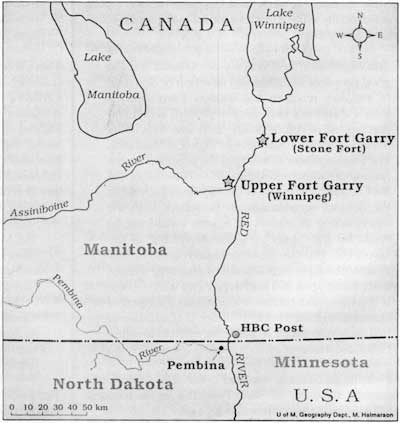Mayotte And France: A Persistent History Of Unequal Treatment

Table of Contents
A Colonial Legacy: The Roots of Inequality
The history of Mayotte's unequal treatment is deeply rooted in its colonial past. French colonization, while bringing Mayotte under French administration, also significantly impacted its socio-economic development, laying the groundwork for the inequalities that persist today. Understanding this legacy is crucial to addressing the present-day challenges.
-
The impact of the Comorian independence movement and Mayotte's decision to remain French: In 1975, the Comoros declared independence from France. However, Mayotte, through a referendum, chose to remain a French territory. This decision, while expressing the will of a segment of the population, also set the stage for a complex relationship with the newly independent Comoros, impacting its political and economic development. This choice significantly influenced Mayotte's trajectory, separating it from its neighbors and leading to unique challenges.
-
The legacy of exploitative economic practices during the colonial era: The colonial period often involved the extraction of resources without equitable benefits for the local population. This created a foundation of economic disparity that continues to affect Mayotte today. Understanding these exploitative practices is crucial to comprehending the current economic challenges faced by Mayotte.
-
The establishment of a departmental status and its implications: Although Mayotte's departmental status in 2011 granted it certain rights and increased integration with France, it didn't automatically solve pre-existing inequalities. The challenges of bridging the gap between a geographically distant island and the mainland persist, highlighting the complexities of integrating an overseas department fully into the French Republic.
Economic Disparities: A Widening Gap
Significant economic discrepancies exist between Mayotte and mainland France. This disparity in economic opportunities contributes heavily to Mayotte's unequal treatment and fuels social unrest. The island's population faces numerous challenges related to economic development.
-
High unemployment rates and limited economic opportunities in Mayotte: Unemployment in Mayotte is significantly higher than in mainland France, leaving many without sustainable livelihoods. The lack of diverse economic opportunities confines many to low-paying jobs or informal work, contributing to poverty and inequality.
-
The high cost of living and the disparity in wages compared to mainland France: The cost of essential goods and services in Mayotte is often higher than on the mainland, while wages remain significantly lower. This creates a substantial economic burden for many families, exacerbating existing inequalities.
-
The impact of migration and population growth on resource allocation: The rapid population growth in Mayotte, fueled by both internal migration and immigration from neighboring islands, places considerable strain on existing resources, further complicating economic development and exacerbating inequality.
-
The need for sustainable development initiatives in Mayotte: Sustainable development initiatives are crucial to addressing Mayotte's economic challenges. Investment in education, infrastructure, and diverse industries is needed to create long-term economic opportunities for the population.
Social Issues and Political Representation: A Struggle for Equality
Mayotte's unequal treatment is also manifest in social issues and its political representation within France. Access to healthcare, education, and other crucial social services remains a significant concern.
-
The challenges of providing adequate healthcare and education in a rapidly growing population: The rapid population increase places enormous strain on healthcare and educational systems. Overcrowded schools and understaffed hospitals contribute to lower quality services, disproportionately affecting vulnerable populations.
-
The underrepresentation of Mayotte's concerns in French national politics: The distance and the relatively small population size of Mayotte compared to mainland France can lead to its concerns being underrepresented in French national politics. This limits the island's ability to advocate for its specific needs and interests.
-
The ongoing struggle for greater autonomy and self-determination: The desire for greater autonomy and self-determination is a recurring theme in Mayotte's political landscape. Striking a balance between increased autonomy and continued integration with France is a complex challenge.
-
The role of civil society organizations in advocating for Mayotte's rights: Civil society organizations play a vital role in advocating for Mayotte's rights and raising awareness about its challenges. These organizations work tirelessly to ensure the island's voice is heard in national and international forums.
The Ongoing Struggle for Justice and Equality in Mayotte
Addressing Mayotte's unequal treatment requires sustained effort and commitment. Various initiatives are underway to improve living conditions and promote equality.
-
Governmental programs and initiatives aimed at improving living conditions: The French government has implemented various programs aimed at improving infrastructure, healthcare, and education in Mayotte. However, these initiatives must be scaled up to address the magnitude of the challenges.
-
The role of international organizations in supporting development efforts: International organizations such as the European Union and the United Nations play a significant role in supporting development efforts in Mayotte, providing technical assistance and funding for various projects.
-
The importance of continued advocacy and awareness-raising: Continued advocacy and awareness-raising are crucial to sustaining the momentum for change. Highlighting Mayotte's challenges and promoting understanding of its unique situation are essential steps toward achieving equality.
-
The need for long-term solutions to address historical injustices: Addressing Mayotte's unequal treatment requires long-term commitment and strategies that go beyond short-term solutions. Addressing historical injustices requires sustained investment and a fundamental shift in the approach to development and integration.
Conclusion
The history of Mayotte's relationship with France reveals a persistent pattern of unequal treatment, rooted in colonialism and perpetuated by economic and political disparities. While strides have been made, significant challenges remain in achieving true equality and justice for the people of Mayotte. Addressing Mayotte's unequal treatment requires a multifaceted approach that includes increased investment in sustainable development, improved social services, and enhanced political representation. By understanding the historical context and the ongoing struggles, we can work towards a more equitable future for Mayotte and strengthen the bonds between the island and its metropolitan power. Learn more about the ongoing fight for equality and justice in Mayotte and how you can contribute to positive change by searching for "Mayotte's unequal treatment" online.

Featured Posts
-
 Sandhagen Vs Figueiredo Key Moments And Results From Ufc On Espn 67
May 04, 2025
Sandhagen Vs Figueiredo Key Moments And Results From Ufc On Espn 67
May 04, 2025 -
 Kanye West And Bianca Censori A Look At Their Marriage Journey
May 04, 2025
Kanye West And Bianca Censori A Look At Their Marriage Journey
May 04, 2025 -
 May 2025 Ufc Schedule Events Dates And Ufc 315 Information
May 04, 2025
May 2025 Ufc Schedule Events Dates And Ufc 315 Information
May 04, 2025 -
 Deutschland Sucht Den Esc Star 2025 Die Erste Show
May 04, 2025
Deutschland Sucht Den Esc Star 2025 Die Erste Show
May 04, 2025 -
 A 25 Year Mystery Tony Todds Final On Screen Appearance Explained
May 04, 2025
A 25 Year Mystery Tony Todds Final On Screen Appearance Explained
May 04, 2025
